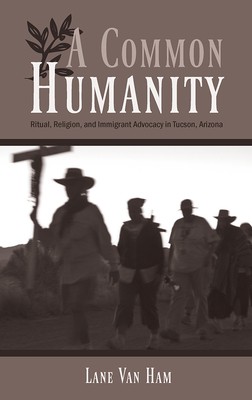
- We will send in 10–14 business days.
- Author: Lane Van Ham
- Publisher: University of Arizona Press
- ISBN-10: 0816529655
- ISBN-13: 9780816529650
- Format: 15.2 x 22.6 x 1.8 cm, softcover
- Language: English
- SAVE -10% with code: EXTRA
Reviews
Description
As debate about immigration policy rages from small towns to state capitals, from coffee shops to Congress, would-be immigrants are dying in the desert along the US-Mexico border. Beginning in the 1990s, the US government effectively sealed off the most common border crossing routes. This had the unintended effect of forcing desperate people to seek new paths across open desert. At least 4,000 of them died between 1995 and 2009. While some Americans thought the dead had gotten what they deserved, other Americans organized humanitarian aid groups. A Common Humanity examines some of the most active aid organizations in Tucson, Arizona, which has become a hotbed of advocacy on behalf of undocumented immigrants.
This is the first book to examine immigrant aid groups from the inside. Author Lane Van Ham spent more than three years observing the groups and many hours in discussions and interviews. He is particularly interested in how immigrant advocates both uphold the legitimacy of the United States and maintain a broader view of its social responsibilities. By advocating for immigrants regardless of their documentation status, he suggests, advocates navigate the conflicting pulls of their own nation-state citizenship and broader obligations to their neighbors in a globalizing world. And although the advocacy organizations are not overtly religious, Van Ham finds that they do employ religious symbolism as part of their public rhetoric, arguing that immigrants are entitled to humane treatment based on universal human values. Beautifully written and immensely engaging, A Common Humanity adds a valuable human dimension to the immigration debate.EXTRA 10 % discount with code: EXTRA
The promotion ends in 20d.04:35:55
The discount code is valid when purchasing from 10 €. Discounts do not stack.
- Author: Lane Van Ham
- Publisher: University of Arizona Press
- ISBN-10: 0816529655
- ISBN-13: 9780816529650
- Format: 15.2 x 22.6 x 1.8 cm, softcover
- Language: English English
As debate about immigration policy rages from small towns to state capitals, from coffee shops to Congress, would-be immigrants are dying in the desert along the US-Mexico border. Beginning in the 1990s, the US government effectively sealed off the most common border crossing routes. This had the unintended effect of forcing desperate people to seek new paths across open desert. At least 4,000 of them died between 1995 and 2009. While some Americans thought the dead had gotten what they deserved, other Americans organized humanitarian aid groups. A Common Humanity examines some of the most active aid organizations in Tucson, Arizona, which has become a hotbed of advocacy on behalf of undocumented immigrants.
This is the first book to examine immigrant aid groups from the inside. Author Lane Van Ham spent more than three years observing the groups and many hours in discussions and interviews. He is particularly interested in how immigrant advocates both uphold the legitimacy of the United States and maintain a broader view of its social responsibilities. By advocating for immigrants regardless of their documentation status, he suggests, advocates navigate the conflicting pulls of their own nation-state citizenship and broader obligations to their neighbors in a globalizing world. And although the advocacy organizations are not overtly religious, Van Ham finds that they do employ religious symbolism as part of their public rhetoric, arguing that immigrants are entitled to humane treatment based on universal human values. Beautifully written and immensely engaging, A Common Humanity adds a valuable human dimension to the immigration debate.

Reviews